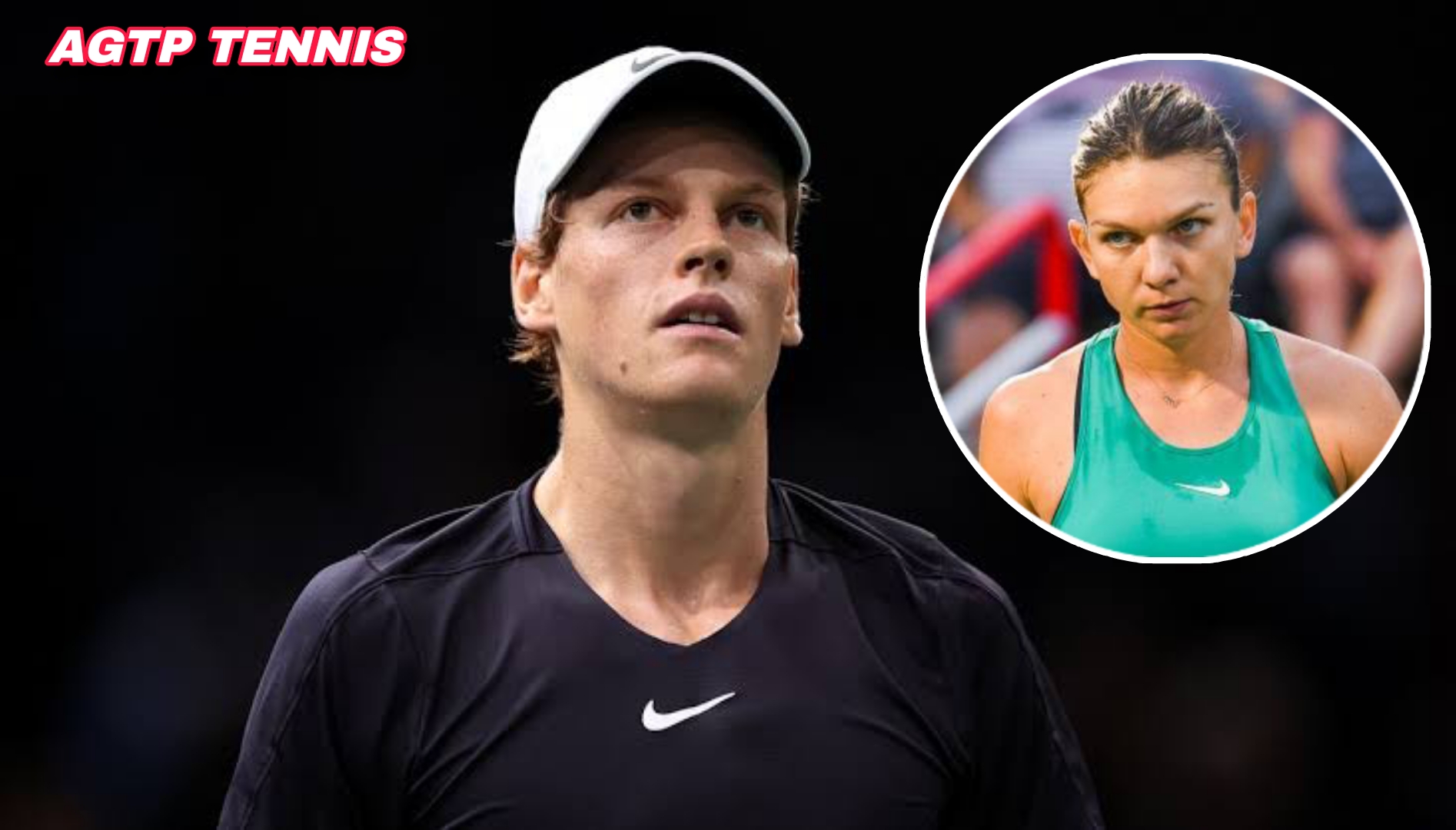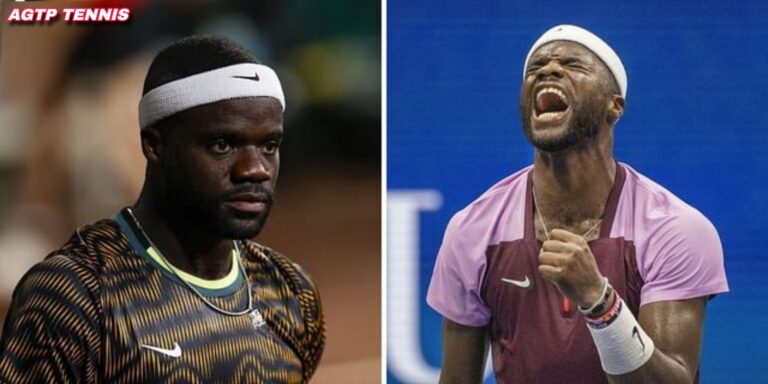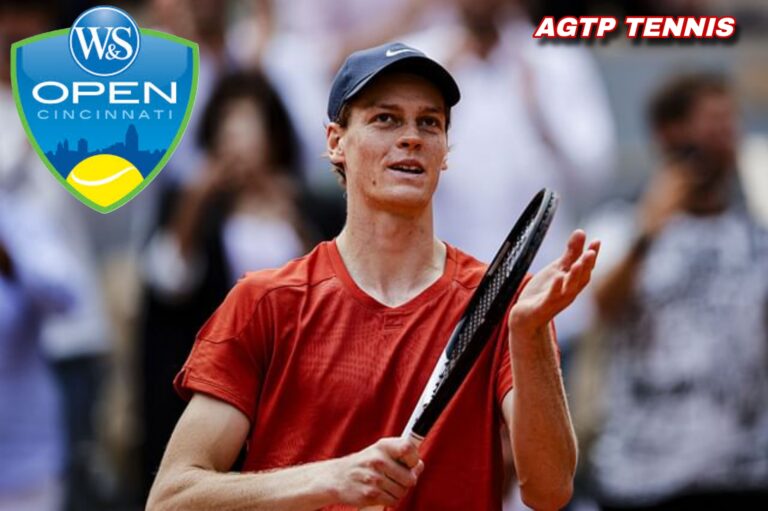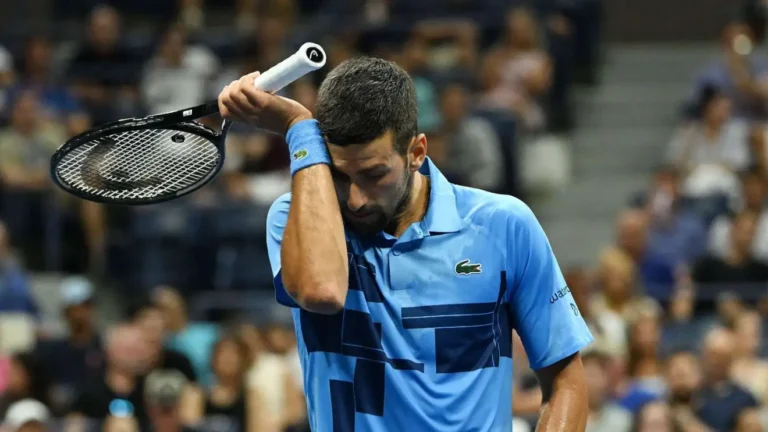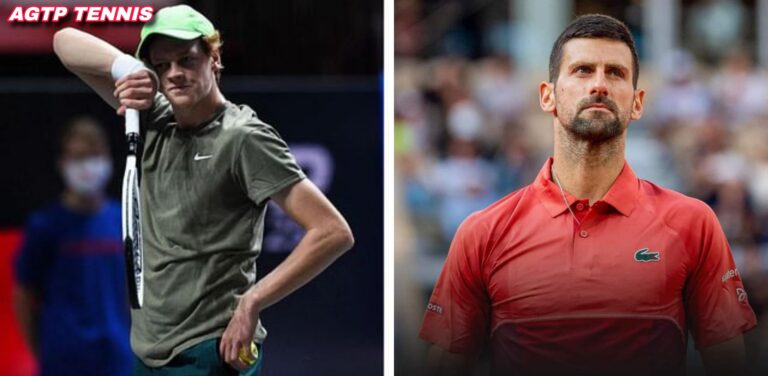“Halep must be losing her head right now” – Fans express outrage as Jannik Sinner avoids suspension despite testing positive twice for a banned substance.
The tennis world is buzzing with controversy following the decision to not suspend Jannik Sinner, the current World No. 1, after he tested positive twice for a banned substance. Fans and commentators alike are drawing comparisons to Simona Halep’s ongoing situation, expressing outrage over what many perceive as a double standard in the handling of doping cases within the sport.
The Controversy
Jannik Sinner, a rising star in the tennis world, recently found himself at the center of a doping controversy after testing positive for Clostebol, an anabolic steroid. The failed tests occurred earlier this year, and the news broke when an independent tribunal ruled that Sinner was “not at fault or negligent” in relation to the positive results. Sinner’s team argued that the substance was inadvertently introduced into his system during a massage by his physiotherapist, who applied a cream bare-handed, leading to contamination. The tribunal accepted this explanation, determining that the trace amounts of Clostebol found in Sinner’s system were too small to have any performance-enhancing effects.
Fan Backlash and Comparisons to Halep
Despite the ruling, the decision to allow Sinner to continue competing without any suspension has sparked outrage among fans and the broader tennis community. Many have taken to social media to express their discontent, with some drawing comparisons to Simona Halep’s situation. Halep, a former World No. 1 and two-time Grand Slam champion, has been embroiled in her own doping scandal, facing a lengthy suspension after testing positive for a different banned substance.
One comment that has resonated with many fans is, “Halep must be losing her head right now.” This statement encapsulates the frustration felt by those who believe that Halep has been treated more harshly compared to Sinner. Fans are questioning the consistency of anti-doping regulations and the fairness of the International Tennis Integrity Agency (ITIA) in handling such cases.
Kyrgios’ Outrage
Nick Kyrgios, known for his outspoken nature, has also weighed in on the controversy, calling the decision to not suspend Sinner “ridiculous.” Kyrgios pointed out that Sinner’s prize money and ranking points from Indian Wells were stripped, indicating that the authorities acknowledged some wrongdoing. He questioned how Sinner could be cleared of intentional doping while still facing penalties that suggest guilt. “Then why did they take prize money and points from Indian Wells? So, did he do something wrong or not? Because they did say he failed two tests,” Kyrgios posted on social media, echoing the sentiments of many who find the situation perplexing.
The ITIA’s Position
Despite the backlash, the ITIA maintains that their decision was based on strict liability rules, which hold athletes responsible for any banned substances found in their system, regardless of intent. Sinner’s lawyer, Jamie Singer, emphasized that while the rules are necessary to maintain the integrity of the sport, they can sometimes ensnare innocent athletes. “There is no question that Jannik is innocent in this case. The ITIA did not challenge that key principle,” Singer said in a statement. He also pointed out that under the strict liability framework, athletes are held accountable even when they are unaware of how the substance entered their system.
Moving Forward
As the US Open approaches, where Sinner is expected to compete, the debate over the fairness and consistency of anti-doping regulations continues to simmer. Fans and players alike are calling for more transparency and uniformity in how these cases are handled, to ensure that justice is served equally across the board. Whether this controversy will lead to any changes in the sport’s anti-doping policies remains to be seen, but for now, the tennis world remains divided.
Check Why Nick Kygrios demands Jannik Sinner suspension as BBC pundit blasts drugs ban decision
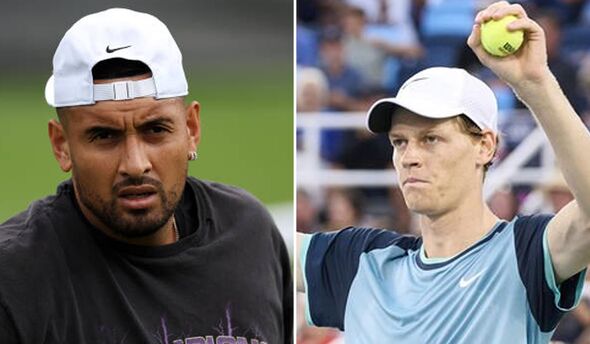
Nick Kyrgios has blasted the tennis authorities for not banning counterpart Jannik Sinner.
Nick Kyrgios has slammed the decision not to impose a drugs ban on Jannik Sinner, calling it “ridiculous.” The Australian insists that his tennis rival should face a two-year suspension.
News emerged earlier today that Jannik Sinner avoided a ban, as a tribunal ruled he was “not at fault or negligent” regarding a failed drug test from earlier this year.
Sinner’s team argued that the current World No. 1 was contaminated after receiving a bare-handed massage from his physiotherapist.
However, this hasn’t deterred the outspoken Nick Kyrgios from voicing his opinion on the matter.
Taking to social media, the 2022 Wimbledon runner-up expressed his frustration, stating: “Ridiculous—whether it was accidental or planned. You get tested twice with a banned (steroid) substance… you should be gone for 2 years. Your performance was enhanced. Massage cream…”
He concluded his post with, “Yeah nice,” accompanied by a sarcastic eye-rolling emoji.
The fiery outburst from Kyrgios prompted a response from an X user, @Riccardo__07, who replied: “His performances were NOT enhanced; the amount of substance is minimal, it wouldn’t even enhance the performance of a little animal.
“We can debate whether the decision is fair or not based on previous rulings, but scientifically, there’s no doubt that it didn’t alter his performance.”
Kyrgios quickly fired back, saying: “Then why did they take prize money and points from Indian Wells? So, did he do something wrong or not? Because they did say he failed two tests.”
An independent commission determined that the amount of the banned substance, an anabolic steroid called Clostebol, was less than a billionth of a gram.
Following the decision, Jannik Sinner addressed the situation in a statement, saying,
“I will now put this challenging and deeply unfortunate period behind me. I will continue to do everything I can to ensure I comply with the ITIA’s anti-doping program, and I have a team around me that is meticulous in their own compliance.”
Sinner’s lawyer, Jamie Singer of Onside Law, also commented: “Anti-doping rules have to be very strict to be effective. Unfortunately, this sometimes means that entirely innocent athletes can get caught up in them.
“There is no question that Jannik is innocent in this case. The ITIA did not challenge that key principle. However, under strict liability rules, Jannik is responsible for whatever is in his system, even if he is entirely unaware of it, as in this exceptional case.”
Despite the controversy, Sinner is expected to compete in the US Open, which begins later this month.

